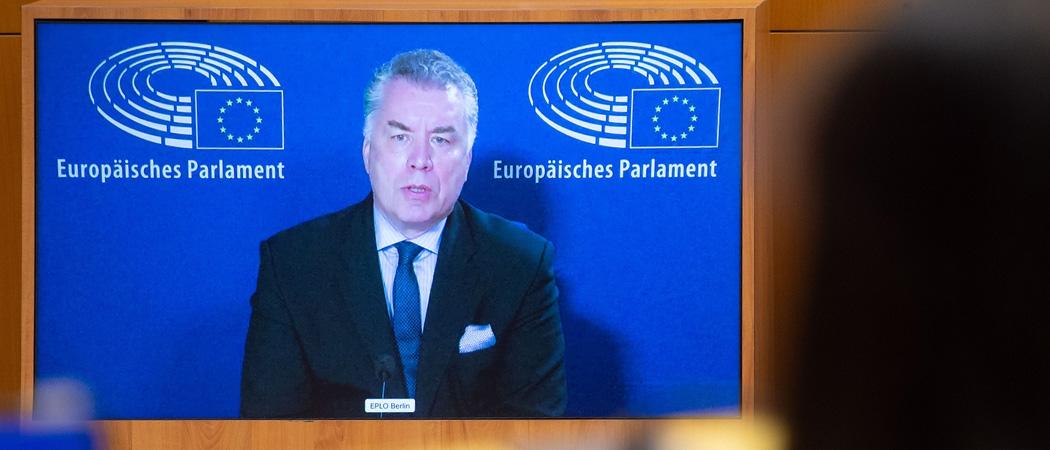The European Commission is yet to come up with an official response to calls by university associations to provide coordinated help to Afghan researchers and academics

Christian Ehler, Member of the European Parliament. Photo : European Union
The European People’s Party (EPP) is calling on the Commission and member states to fund emergency placements for Afghan researchers and academics at European higher education and research institutions.
One of the EPP’s lead MEPs, Christian Ehler, said scientists in Afghanistan risk being persecuted by the Taliban, after the islamist group took over the country when the US military and its allies pulled out.
“Afghan scientists who, with support of the EU and its member states, have worked on a new future for Afghanistan are facing a dangerous future due to the return to power of the Taliban,” said Ehler.
EPP is echoing a previous call by Scholars at Risk and 50 higher education networks, associations and organisations, urging European governments and EU institutions to help scientists and academics get out of the country.
“I support the call of the European academic sector on European governments and the European Commission, to do what they can to make funds available to support emergency placements. Furthermore, the EU clearly has to work on expanding its capacity to offer a safe haven to scientists at risk of any national government oppression,” said Ehler.
Evelyn Regner, an Austrian MEP in the S&D group and chair of the committee on women’s rights and gender equality, said female activists, journalists and professors are at risk of being jailed or persecuted by the Taliban, who are now enforcing a strict islamist ideology that bans women from participating in public life. “EU’s efforts have to be focused on rescuing as many people as possible from Afghanistan,” said Regner.
Speaking via videolink in the European Parliament, Akbar Shaharzad, chair of the Afghanistan Independent Human Rights Commission, said the new rules have already imposed restrictions on women working in media, politics and culture.
“Under the Taliban’s regime, academic freedom is likely to disappear and these scientists will not be able to continue their scholarly work in Afghanistan,” said Ehler. “Scientists that face this kind of risk need to be able to find a safe haven to continue their scholarly work at European academic institutions,” he added.
The Commission has yet to come up with an official response to calls by university associations to offer coordinated help to Afghan researchers and academics. It has frozen €1 billion worth of development assistance for Afghanistan and is now exploring ways to carry on with these projects without Taliban interference.
Several research and higher education institutions in Europe have announced individual plans to take in researchers from Afghanistan. The Alexander von Humboldt Foundation has teamed up with PAUSE, France’s flagship programme for hosting scientists in exile, and other organisations in Europe to open up opportunities for as many researchers as possible.
Across the Atlantic, Mexico welcomed five Afghan women researchers who were part of an international robotics team and who decided to flee the country after the Taliban takeover.
Afghanistan has 39 public universities and 128 private universities and institutions of higher education.
According to a 2020 report by the United Nations Economic Commission for Europe, Afghanistan’s higher education sector is underfunded and lacks the infrastructure modern universities require. Most schools and universities lack reliable internet connections, while only a few have proper IT systems for managing administrative tasks.
University associations in Europe say the EU should increase resettlement quotas to help academics who need international protection. Many universities are ready to take in researchers but they need expedited legal procedures and a waiver of residency requirements and intent-to-return declarations for visa applications.
Universities and research institutions are also backing the establishment of a dedicated fellowship for scholars at risk.





 A unique international forum for public research organisations and companies to connect their external engagement with strategic interests around their R&D system.
A unique international forum for public research organisations and companies to connect their external engagement with strategic interests around their R&D system.